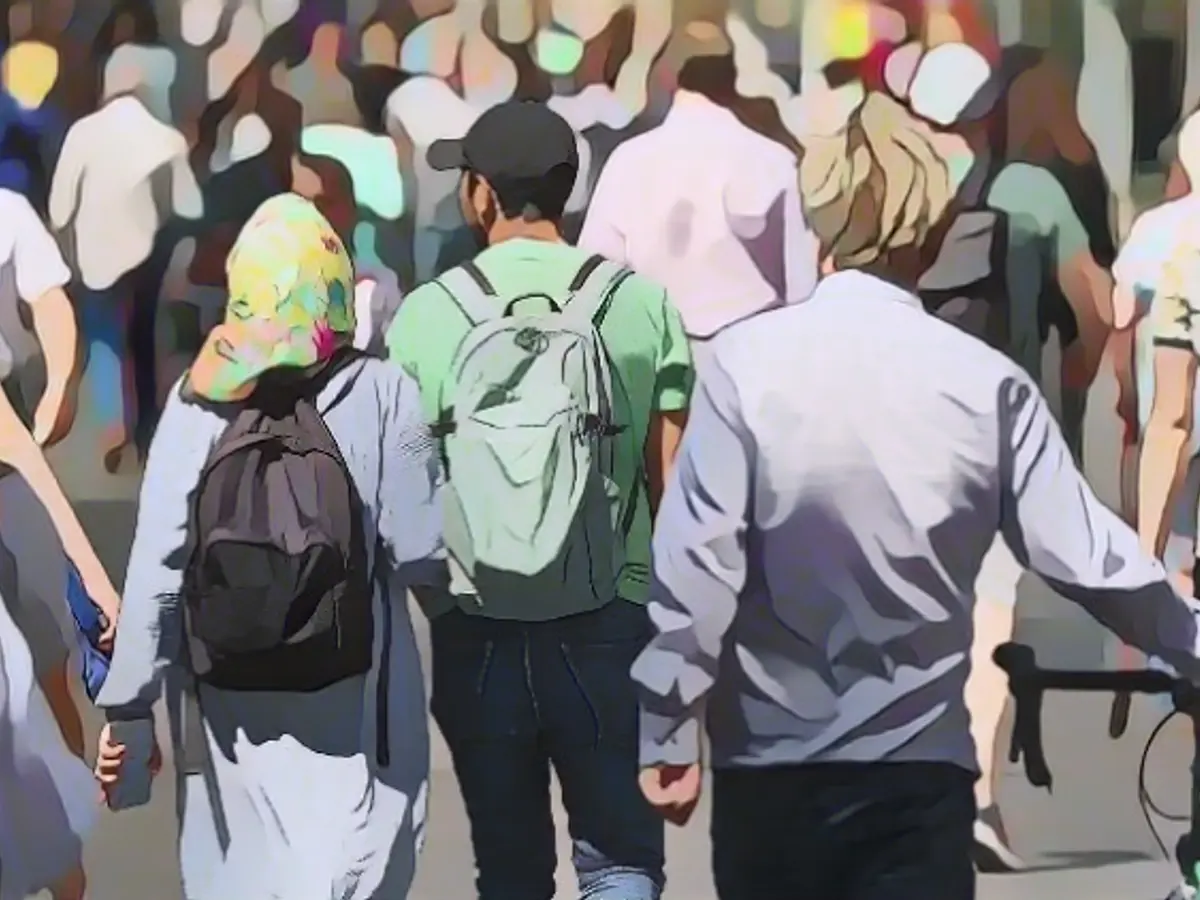Encounters with Unwarranted Hostility: Muslims in Germany Suffer from Suspicion and Stigmatization
Marianne, a dedicated teacher in her mid-fifties, is strolling through a local park when she overhears two men bickering about the ongoing conflict in the Middle East. One of the men, angered by the rhetoric of the other, shouts, "You're with them! You sympathize with terrorists!" Marianne, a Muslim, is taken aback by the blatant lack of empathy and understanding.
This scenario is becoming increasingly common in Germany, where Muslim communities have been faced with an uptick in suspicion and stigmatization. Their experiences of sidelining and othering are more pronounced since the October 7 terror attack pushed the country's emphasis on Muslims further to the forefront.
A New Sense of Hostility
The October 7 incident has caused many "Muslim-marked" individuals to perceive a shift in their day-to-day interactions. This harsh climate has been attributed to religious and political tensions in the Middle East. The researcher Amira, born and raised in Germany, has frequently encountered strangers singing the same tune, urging her to "learn German first" or follow "German rules." She is not alone; several other Muslim-identifying individuals have also reported losing their jobs due to sympathetic pro-Palestinian sentiments.
Shifting Priorities and Frustration
The tension between Jews and Muslims in the Middle East conflict has caused an uncomfortable shift in German society, making Muslims the target of unjustified stereotypes and hostility. Yasemin El-Menouar, a religion expert from the Bertelsmann Stiftung, views this scenario as resembling the aftermath of the September 11 terrorist attacks. She explains that Muslims in Germany have been shrouded in general suspicion and called upon to make their position clear.
Yasemin further observes that people from Muslim backgrounds in schools often encounter "attitude tests," where teachers scrutinize their views on the conflict. She believes that these practices are unacceptable and that respect for differing beliefs in a multicultural society requires understanding and patience rather than constant scrutiny.
Opinions, Consequences, and Societal Divide
Religious scholar Jörn Thielmann considers the treatment of Muslims, many of whom are long-standing German citizens, to be unfair. He contends that Muslims are unjustly lumped together with extremist groups, while their individual values, identities, and lives are overlooked. Thielmann warns that younger Muslims may be negatively influenced by this climate of stigmatization, leading to long-term consequences.
Perceptions of "othering" together with a focus on Muslims' supposed countries of origin have contributed to an increasingly fragmented society. This is manifested in both blatant anti-Semitism and hostility toward Muslims. In the face of such growing separation, Federal President Frank-Walter Steinmeier convened a round table discussion to promote solidarity and peaceful coexistence.
Fostering Understanding and Unity
Yasemin stresses that while radical attitudes may exist within the Muslim community, it is essential not to single out this group. Doing so would only further exacerbate divisions and tensions in society. She advocates for a more nuanced and empathetic approach, acknowledging the presence of antisemitic attitudes among Muslims, while also tackling the issue in its broader societal context.
In the midst of this shifting landscape, Amira and other Muslim friends in Germany are grappling with micro-aggressions, subtle derogatory comments, and insidious questions about their loyalty and belonging. The lawyer from Berlin, a Palestinian-born individual, finds herself contemplating emigration as a result of her experiences with hostility and accusations.
Sources
Enrichment Data
The increase in general suspicion and stigmatization towards Muslims in Germany since October 7, 2023, cannot be directly traced in the provided sources. However, available context provides insights into broader issues that may contribute to this trend.
- Political Climate and Media: The rise of far-right parties, such as the Alternative for Germany (AFD), has contributed to a xenophobic and nationalist landscape, which can fuel tension and suspicion against minorities. Furthermore, the pressures of political discourse and media representations of Muslims and the Middle East conflict can also impact how these communities are perceived in German society.
- Cultural and Social Dynamics: The cultural and social climate of Germany has seen considerable impacts from both the influx of refugees and the ongoing COVID-19 pandemic. The necessity for representative figures among Muslim communities throughout Germany may have heightened awareness and scrutiny of Muslims in the country, contributing to the climate cited in the article.
- Antisemitism and Muslim-antisemitism: The tensions within the broader Middle East conflict have resulted in a more divisive discourse where anti-Semitism and Muslim-antisemitism become intertwined. This dynamic can further exacerbate the climate of suspicion towards Muslims, as their connection to the conflict is emphasized amid political division.
- Muslim Community and Radicalization: While the sources do not directly comment on the issue of radicalization within the Muslim community in Germany, the hyper-scrutiny placed upon Muslim citizens may contribute to a sense of alienation and misunderstanding. This could potentially lead to feelings of frustration, and in turn, a more radicalized perspective from certain individuals within the affected communities.
The absence of data or direct analysis regarding the increase in suspicion and stigmatization towards Muslims since October 7, 2023, necessitates a more targeted focus on the experiences of Muslim communities during this period to further understand intensified tensions and associated causes.






